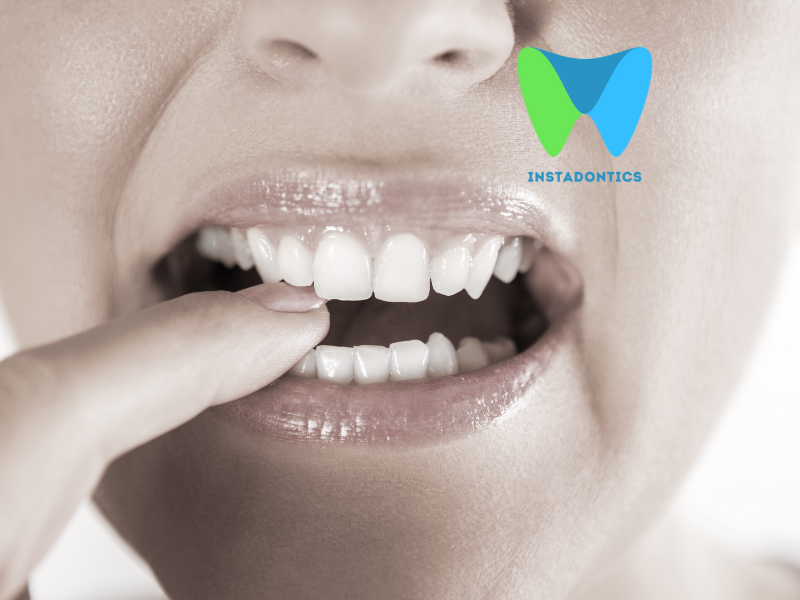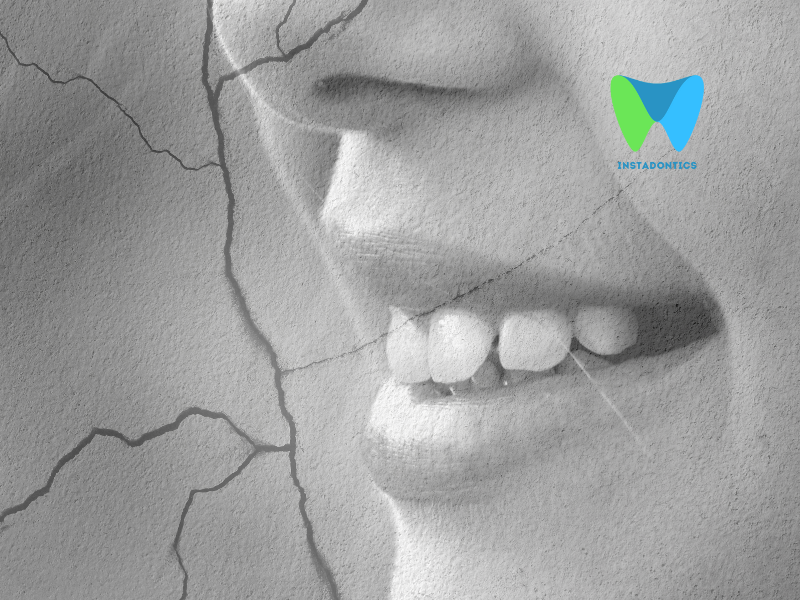Bruxism, the involuntary grinding or clenching of teeth, is a common condition that can lead to a range of dental issues, including worn enamel, tooth sensitivity, and jaw pain. As individuals seek ways to manage their bruxism, one common question arises: does chewing gum help or hurt bruxism? In this blog, we will explore the effects of chewing gum on bruxism, examining both potential benefits and drawbacks, while also considering expert opinions and research findings.
Bruxism
Before delving into the effects of chewing gum, it’s essential to understand what bruxism is and its potential causes. Bruxism can occur in two primary forms:
- Awake Bruxism: This type occurs when individuals grind or clench their teeth while awake, often due to stress, anxiety, or concentration.
- Sleep Bruxism: This form takes place during sleep and is often associated with other sleep disorders, such as sleep apnea.
Causes of Bruxism
The causes of bruxism are multifactorial and can include:
- Stress and Anxiety: Psychological factors are significant contributors to bruxism. High-stress levels can lead to muscle tension in the jaw, resulting in grinding.
- Dental Issues: Misaligned teeth or jaw problems can lead to bruxism. When the bite is not aligned correctly, it can cause discomfort, leading to grinding.
- Sleep Disorders: Conditions like sleep apnea can increase the likelihood of bruxism. Disrupted sleep patterns can lead to increased muscle tension and grinding.
- Lifestyle Factors: Consumption of stimulants, such as caffeine and nicotine, can exacerbate bruxism. Additionally, excessive alcohol intake may also contribute to the condition.
The Role of Chewing Gum
Chewing gum is a common habit for many individuals, often associated with freshening breath and reducing stress. However, its impact on bruxism is a topic of debate. Let’s explore both the potential benefits and drawbacks of chewing gum for individuals with bruxism.
Potential Benefits of Chewing Gum
- Distraction from Stress: Chewing gum may serve as a distraction for individuals dealing with stress or anxiety. The act of chewing can help release tension and provide a calming effect. Some studies suggest that repetitive motions, like chewing, can reduce feelings of stress and improve focus.
- Jaw Muscle Engagement: Chewing gum engages the jaw muscles, which may promote relaxation in some individuals. For those who experience awake bruxism, the act of chewing may help alleviate tension in the jaw and prevent involuntary grinding. Engaging the muscles in a controlled manner could potentially reduce the desire to grind.
- Improved Saliva Production: Chewing gum stimulates saliva production, which can be beneficial for oral health. Increased saliva helps neutralize acids in the mouth, wash away food particles, and protect against tooth decay. For individuals with bruxism, maintaining good oral health is crucial, as grinding can lead to dental issues.
- Potential for Habit Replacement: For individuals who are aware of their bruxism, chewing gum may serve as a healthier oral habit to replace the negative habit of grinding. By consciously choosing to chew gum instead of grinding their teeth, individuals may be able to reduce the frequency of bruxism episodes.
Potential Drawbacks of Chewing Gum
- Reinforcement of Grinding Habits: While chewing gum may provide temporary relief, it can also reinforce the habit of clenching and grinding. For some individuals, the act of chewing may inadvertently condition the jaw muscles to remain tense, increasing the likelihood of bruxism episodes, particularly in those who already struggle with the condition.
- Increased Jaw Muscle Fatigue: Chewing gum for extended periods can lead to muscle fatigue and discomfort in the jaw. For individuals with bruxism, whose jaw muscles may already be overworked, additional strain from chewing gum can exacerbate symptoms and lead to increased pain or discomfort.
- Potential for Dental Issues: Excessive chewing of gum, especially sugary varieties, can lead to dental problems such as cavities and gum disease. Individuals with bruxism are already at risk for dental issues due to grinding, and adding gum chewing into the mix may compound these problems.
- Temporomandibular Joint (TMJ) Issues: For individuals with existing TMJ disorders, chewing gum can exacerbate pain and discomfort. The repetitive motion of chewing may put additional strain on the jaw joint, leading to increased symptoms.
Research Findings on Chewing Gum and Bruxism
While anecdotal evidence exists regarding the effects of chewing gum on bruxism, scientific research is limited. However, some studies provide insights into the relationship between chewing gum and jaw health:
- A study published in the Journal of Oral Rehabilitation examined the effects of chewing gum on the temporomandibular joint (TMJ) and found that excessive gum chewing could lead to increased muscle activity and discomfort in individuals with TMJ disorders (source). This finding suggests that for individuals with bruxism, prolonged chewing may not be beneficial.
- Another study published in The Journal of Clinical Dentistry explored the impact of chewing gum on muscle activity in the jaw. The results indicated that while chewing gum could increase muscle activity, it also led to increased fatigue in the jaw muscles, which may not be ideal for individuals already experiencing bruxism (source).
- A review in the Journal of Orofacial Pain highlighted the need for further research on the relationship between chewing habits and bruxism. The authors noted that while some individuals may find relief through chewing, others may experience exacerbation of symptoms (source).
Alternative Approaches to Managing Bruxism
If chewing gum is not the ideal solution for managing bruxism, several alternative approaches may help alleviate symptoms:
- Stress Management Techniques: Incorporating relaxation techniques, such as mindfulness meditation, deep breathing exercises, and yoga, can help reduce stress and anxiety, which are significant contributors to bruxism. Engaging in these practices regularly can promote relaxation and help decrease the likelihood of grinding teeth.
- Jaw Exercises: Performing specific exercises can strengthen and relax the jaw muscles. Gentle stretching and relaxation exercises may help alleviate tension. For example, you can try opening your mouth wide and holding it for a few seconds, then closing it slowly. Additionally, massaging the jaw muscles can help release built-up tension.
- Mouthguards and Splints: Dental professionals often recommend custom-fitted mouthguards or splints for individuals with bruxism. These devices can protect the teeth from grinding and help reduce the strain on the jaw muscles. Wearing a mouthguard during sleep can be particularly beneficial for those with sleep bruxism.
- Lifestyle Changes: Making adjustments to your daily routine can significantly impact bruxism. Limiting caffeine and alcohol intake, especially in the hours leading up to bedtime, can help reduce muscle tension and improve sleep quality. Additionally, establishing a consistent sleep schedule and creating a calming bedtime routine can promote better rest.
- Hydration: Staying well-hydrated is essential for overall muscle function. Dehydration can lead to increased muscle tension, so ensure you’re drinking enough water throughout the day. Herbal teas, particularly those with calming properties like chamomile or valerian root, can also be beneficial.
- Dietary Considerations: A balanced diet rich in vitamins and minerals can support overall health and reduce anxiety. Foods high in magnesium, such as leafy greens, nuts, seeds, and whole grains, may help promote muscle relaxation and alleviate tension.
- Cognitive Behavioral Therapy (CBT): For individuals whose bruxism is linked to anxiety or stress, seeking support from a mental health professional may be beneficial. Cognitive Behavioral Therapy can help individuals identify and change negative thought patterns and behaviors, ultimately reducing anxiety and the occurrence of bruxism.
- Regular Dental Check-Ups: Regular visits to the dentist are crucial for monitoring the effects of bruxism and addressing any dental issues that may arise. Your dentist can provide guidance on managing bruxism and recommend appropriate interventions to protect your teeth.
When to Seek Professional Help
It’s important to recognize when bruxism may require professional intervention. Consider seeking help if:
- Bruxism is Causing Significant Dental Damage: If you notice increased wear on your teeth, experience pain, or have developed dental issues due to grinding, consult your dentist for evaluation and treatment options.
- Anxiety is Interfering with Daily Life: If anxiety is impacting your ability to work, socialize, or enjoy daily activities, consider seeking support from a mental health professional.
- You Experience Severe Jaw Pain or Headaches: Chronic jaw pain, migraines, or tension headaches should be evaluated by a healthcare provider to determine the underlying cause and appropriate treatment.
- Sleep Disturbances are Affecting Your Quality of Life: If you struggle with insomnia or poor sleep quality due to bruxism or anxiety, consider consulting a sleep specialist or healthcare provider.
The relationship between chewing gum and bruxism is complex, with potential benefits and drawbacks. While chewing gum may provide temporary relief from stress and promote saliva production, it can also reinforce grinding habits and lead to increased muscle fatigue and discomfort. Individuals with bruxism should approach gum chewing with caution and consider their unique circumstances.
Ultimately, managing bruxism requires a multifaceted approach that includes stress management, lifestyle changes, and professional guidance. If you experience bruxism, it is essential to explore various strategies to alleviate symptoms and protect your oral health. Consulting with a dental professional can help you develop a personalized plan that addresses both the physical and psychological aspects of bruxism.
By understanding the potential impact of chewing gum and implementing effective management strategies, individuals can take proactive steps toward reducing bruxism and achieving better oral and overall health. Prioritizing relaxation techniques, maintaining good dental hygiene, and seeking professional help when needed can lead to a healthier, more restful life.



